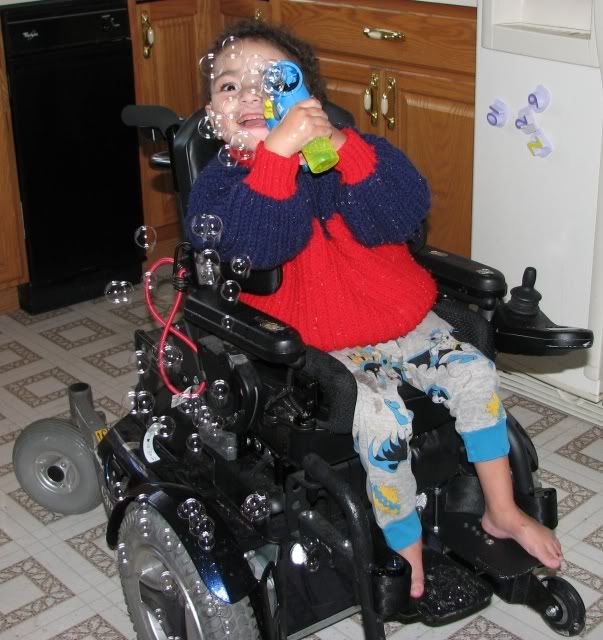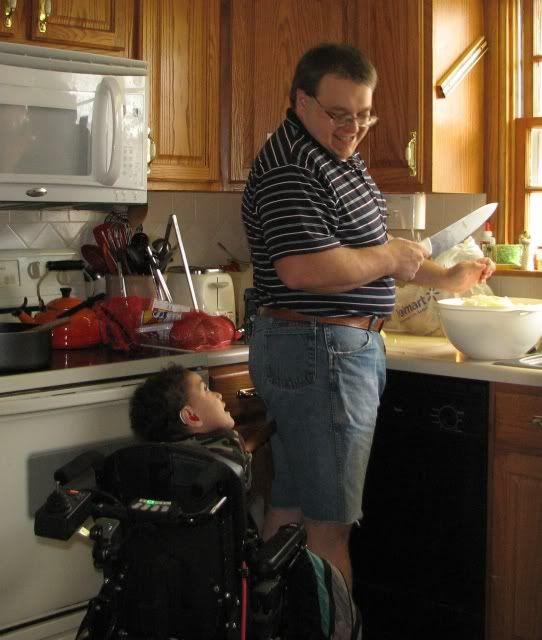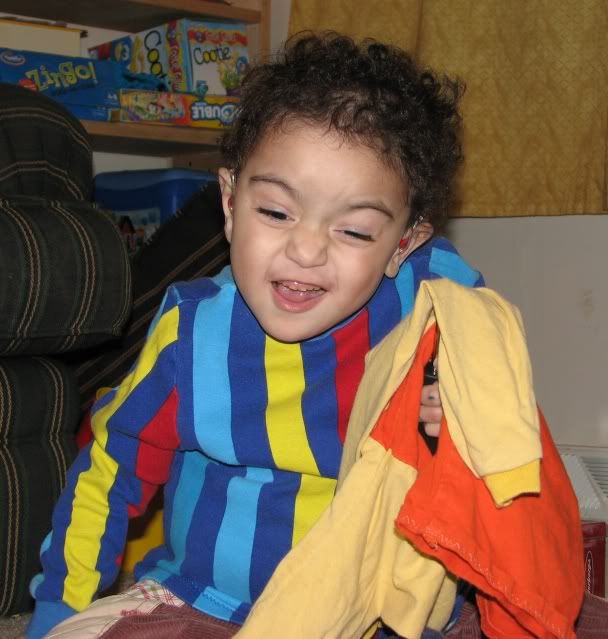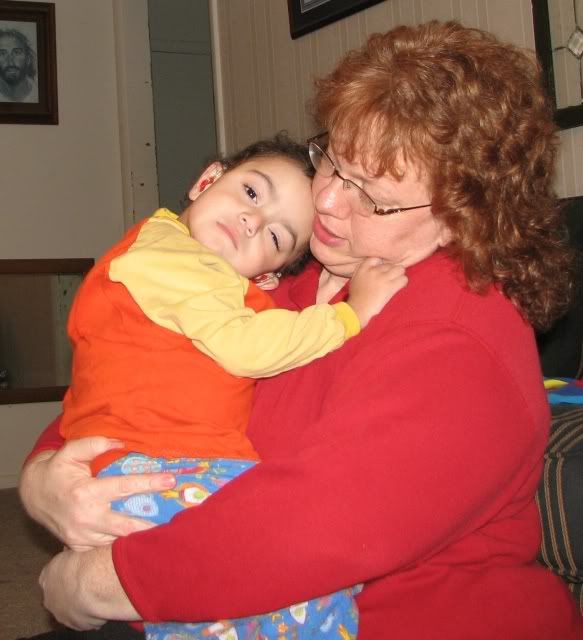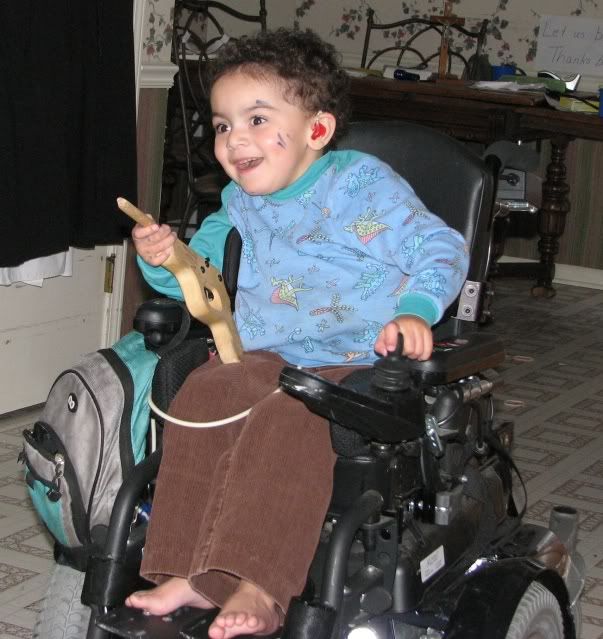I read this book because I have been wracking my brains and Mark's and anyone else who was willing to listen and think about it, about how do we teach John to read. Mark has been working with John on recognizing the different sounds that vowels make, John cannot distinguish the short sounds on their own, at least not enough to tell you which letter makes that sound, making it pretty evident that an off the shelf phonics program isn't going to work well as is, and whole word, well that's a whole different can of worms.
So what I gleaned from the book is this, no one knows why or how a deaf child learns to read. That's almost a verbatim quote and it gives this mommy no comfort whatsoever. The book also explains that no hearing device, aids or implants, corrects hearing enough that a child can acquire language to a high degree naturally like hearing children can. The book does however discuss what you can do to help your child learn to read, it holds teaching reading as teachers job, but anti-homeschool bias aside it has some really good information, things that I had not really thought out or hadn't thought out far enough.
The first thing it talks about is something that we learned a long time ago there is a big difference between language and talking. Language acquisition for hearing children without cognitive impairment comes as naturally as breathing. Just being surrounded by people talking teaches them to do so, and doing things intentionally only makes things better. For deaf kids of deaf parents language acquisition is also natural, they are immersed in ASL from the moment they are born and learn it just like hearing kids learn the native language of their parents. Aside from cognitive inability and such, the kids that have the worst time of this are deaf kids of hearing parents. Speaking as a hearing parent of a deaf kid this is a big mountain to climb.
The author defines 3 levels of literacy, functional meaning that you can read enough to know what's in a box or which sign says stop, cultural meaning that you can read enough to get what's going on around you and interact with it on a basic level, such as reading a newspaper article about a sports team and understanding what happened to the team. The last category of literacy is critical literacy, the ability to read and comprehend language to such a degree that you can not only interact with it but use it to change your surroundings for the better, to impact your society. That is the level of literacy that Mark and I so thoroughly enjoy and that is our hearts desire for John, second only to his remaining in faith to the end, critical literacy is really our one and only educational goal.
The book talks a lot about what critically literate deaf people's parents did with and for them when they were kids. Lots and lots of intense, intentional language experiences. Mark and I have always talked to John, read to him and such, but according to this book we are just barely scratching the surface of what it is going to take to give him this level of literacy that we want him to have. I have to give this copy of the book back to the library, but will be ordering our own copy from Amazon, because it's going to need lots of rereads, lots of underlining, highlighting and notes in the margins. I wish we would have had the book on the day that we got the diagnosis of deafness, frankly that would have been oh so very much more helpful than all the info that we were given about oral-deaf education, a soap box that I'll try to stay down off of at the moment.
Monday when we go into Columbia we will be headed into the library for another title, one recommended by this author, another one which I am pretty sure I will have wish that I had 3 years ago:
The Signing Family: What every parent should know about sign communication by D. A. Stewart and B. Luetke-Stahlman. John is so very smart, he can run electronic things such as the DVR remote, my cell phone and computer, he drives his chair in ways that tells me that he is watching and learning cause and effect and has great spatial awareness, just one look in his eyes and you know that you are dealing with a smart, smart little boy. The down side to all this is that John is trapped inside his body, not completely like an autistic person, but he has real problems with language expression. He can tell us what he needs and wants for the most part, he comes and gets us to show us things that are funny, and can express some feelings, that he loves us and that he hurts. He is constantly learning and we have had this debate for a long time whether we should concentrate on teaching him to express himself or fill his head with knowledge or do both. We've always kinda landed on the do both choice, but I am seeing from this book that while we need to be doing both we have got to crank up the work on expressive language way beyond anything we've ever even considered doing before.
I have times when I feel completely inadequate for this job, but I know that the schools can't give him what he needs, and while his therapists are doing a great job they too can't give him everything he needs for learning language to the extent that we want him to enjoy, it's up to us and by God's grace we will do the best that we can and rely on Him to help us through our weakness and inadequacies.

